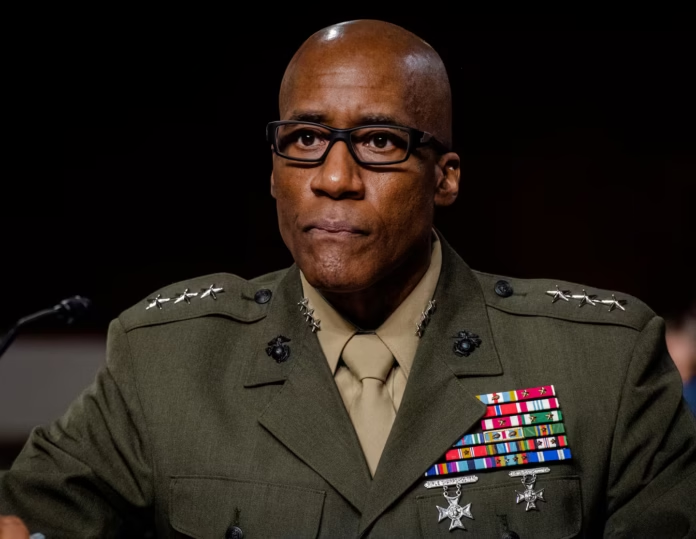General Michael Langley, the Commander of United States Africa Command (AFRICOM), has expressed concern about the increasing attempts of terrorists and extremist organizations in the Sahel to extend their activities to the coast of West Africa.
Langley warned that access to West African coasts would greatly increase the terrorists’ capacity for smuggling, arms trafficking, and destabilization. Langley called the recent spike in terrorist activity throughout Nigeria, the Sahel, and the Lake Chad Basin “deeply concerning” during a press conference held at the African Chiefs of Defence Conference in Nairobi, Kenya.
Langley cited the deteriorating situation in the Sahel, which encompasses Mali, Burkina Faso, and Niger, where terrorist organizations associated with ISIS and Al-Qaeda have established themselves.
Langley cautioned that the threat of terrorism is no longer confined to one area, but is increasingly affecting countries along the West African coast.
“Violent incidents are on the rise again in the Lake Chad Basin, and extremist groups are becoming more assertive,” he noted. “The recent attacks in Nigeria and across the broader Sahel region are deeply troubling.”
He warned that these groups are now aiming to gain access to coastal West Africa, which would allow them to fund their operations through illicit means such as smuggling, human trafficking, and arms trade. This development, he said, not only jeopardizes African nations but could also pose threats to the United States.
Despite these growing challenges, Langley expressed optimism about Africa’s ability to manage its security issues. He praised countries like Ghana, Côte d’Ivoire, and Benin for proactively guarding their northern borders against terrorist infiltration.
Reaffirming the United States’ support for counterterrorism efforts, Langley emphasized that the U.S. remains committed to working alongside African partners, even as its military presence on the continent adjusts.
“We honor the sovereignty of African nations and only operate where we’re invited, provided our national security goals align,” he stated.
He also commended African armed forces for their proactive approach to security, stating, “African militaries are not waiting for external help. They’re confronting threats directly and creating opportunities for lasting peace.”
Langley highlighted AFRICOM’s close collaboration with Nigeria in its fight against Boko Haram and ISIS West Africa, as well as the growing U.S. involvement in Somalia, where over 25 airstrikes have been carried out this year—more than double the number in the previous year.
He stressed that AFRICOM’s role extends beyond providing military assistance. “Our mission is about fostering stability. We focus on intelligence sharing, building local capacity, and addressing the underlying causes of extremism,” he said.
Langley concluded by emphasizing that AFRICOM’s ultimate aim is to enable African nations to independently tackle their own security challenges.
“Our focus is on building strong, self-reliant security forces. The core of our partnership is summed up in three words: peace through strength. We’re always more effective when we work together,” he said.
Through its partnership-driven approach, AFRICOM seeks to reinforce African defense capabilities and support lasting stability that benefits both Africa and the United States.

